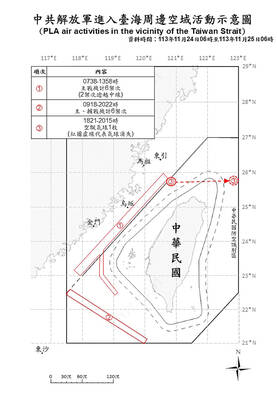US nationals do not automatically lose their citizenship when they serve in a foreign government, an official from the US State Department’s Bureau of Consular Affairs said.
Any nationals intending to relinquish their US citizenship must complete all formalities, which include signing an oath of renunciation before a US diplomatic or consular officer at a US embassy or consulate, the official said.
“Renunciations that do not meet the conditions described above have no legal effect,” the official told the Central News Agency.
The issue has drawn much attention since it was reported recently that Chinese Nationalist Party (KMT) Legislator Diane Lee (李慶安) had never officially renounced her US citizenship although she has been in public office in Taiwan since 1994.
Lee admitted that she obtained US citizenship in 1991, but argued that she lost her status as a US citizen “legally” when she was sworn in as a Taipei city councilor in 1994.
However, the US official said that while serving in a foreign government is one of the legal conditions for loss of citizenship, the US Immigration and Nationality Act also states that such an act must be performed “voluntarily and with intent to relinquish US citizenship.”
Therefore, the formalities mentioned above must be completed, he said.
Under pressure from the Democratic Progressive Party, the legislature adopted a resolution on Friday asking the Ministry of Foreign Affairs to help verify with foreign governments whether any of the sitting legislators hold foreign citizenship.
The move was made in line with Taiwan’s Nationality Act (國籍法), which forbids Republic of China nationals who hold foreign citizenship from assuming public office and requires those with foreign citizenship be removed from their posts.
The American Institute in Taiwan did not respond to a Taipei Times’ e-mail inquiry yesterday on whether a US national could lose his or her citizenship without the formal act of relinquishing it before a US immigration officer.
The Bureau of Consular Affairs’ Web site states that there is no general prohibition on US citizens running for an elected office in a foreign government. However, the eighth clause under Article 1, Section 9 of the US Constitution states that US federal government officers may not accept foreign government employment without the consent of Congress.
With respect to loss of nationality, 349(a)(4) of the US’ Immigration and Nationality Act states that accepting, serving in, or performing duties in a foreign government is potentially an expatriating act if the person is a national of that country or takes an oath of allegiance in connection with the position.
“The threshold question,” the bureau’s Web site said, “is whether the person’s actions fall within the scope of this provision.”
“The prefatory language of Section 349 requires that the expatriating act be performed voluntarily “with the intention of relinquishing US nationality. Thus, if it is determined that the person’s action falls within the purview of 349(a)(4), an adjudication of the person’s intent must be made,” it said.
Given that “the State Department’s administrative practice presumes that US citizens employed in non-policy level positions in a foreign government do not have the requisite intent to relinquish US citizenship, there are no efforts to see out or adjudicate the citizenship of nationals who fall into this category of employment.”
“Efforts also must be made to fully adjudicate such cases to determine one’s intent if the individual serves in a policy-level position in a foreign government. Service in a country’s legislative body is considered by the State Department to be a policy-level position.”
In a situation where holding a foreign office may be incompatible with maintaining US citizenship, each case would be examined on a case-by-case basis.
Kevin Stratford, an immigration lawyer in the US, said that because relinquishing one’s US citizenship is irrevocable, the US government advises individuals to take careful consideration before relinquishing their citizenship.
Even in the case of treason, the court has to thoroughly examine how the person’s action has harmed the interests of the US government before stripping the individual’s citizenship, he said.

Theaters and institutions in Taiwan have received 28 threatening e-mails, including bomb threats, since a documentary critical of China began being screened across the nation last month, the National Security Bureau said yesterday. The actions are part of China’s attempts to undermine Taiwan’s sovereignty, it said. State Organs (國有器官) documents allegations that Chinese government officials engage in organ harvesting and other illegal activities. From last month to Friday last week, 28 incidents have been reported of theaters or institutions receiving threats, including bomb and shooting threats, if they did not stop showing the documentary, the bureau said. Although the threats were not carried out,

‘GRAY ZONE’ TACTICS: China continues to build up its military capacity while regularly deploying jets and warships around Taiwan, with the latest balloon spotted on Sunday The US is drawing up contingency plans for military deployments in Japan and the Philippines in case of a Taiwan emergency, Japan’s Kyodo news agency reported. They would be incorporated in a first joint operation plan to be formulated in December, Kyodo reported late on Sunday, citing sources familiar with Japan-US relations. A US Marine Corps regiment that possesses High Mobility Artillery Rocket Systems — a light multiple rocket launcher — would be deployed along the Nansei Island chain stretching from Kyushu to Yonaguni near Taiwan, Kyodo said. According to US military guidelines for dispatching marines in small formations to several locations,

As Taiwan celebrated its baseball team’s victory in the World Baseball Softball Confederation’s Premier12 on Sunday, how politicians referred to the team in their congratulatory messages reflected the nation’s political divide. Taiwan, competing under the name Chinese Taipei (中華台北隊), made history with its first-ever Premier12 championship after beating Japan 4-0 at the Tokyo Dome. Right after the game, President William Lai (賴清德) congratulated the team via a post on his Facebook page. Besides the players, Lai also lauded the team’s coaching and medical staff, and the fans cheering for them in Tokyo or watching the live broadcast, saying that “every

The Mainland Affairs Council (MAC) yesterday confirmed that Chinese students visiting Taiwan at the invitation of the Ma Ying-jeou Foundation were almost all affiliated with the Chinese Communist Party (CCP). During yesterday’s meeting convened by the legislature’s Foreign Affairs and National Defense Committee, Democratic Progressive Party (DPP) Legislator Michelle Lin (林楚茵) asked whether the visit was a way to spread China’s so-called “united front” rhetoric, to which MAC Deputy Ministry Shen You-chung (沈有忠) responded with the CCP comment. The MAC noticed that the Chinese individuals visiting Taiwan, including those in sports, education, or religion, have had increasingly impressive backgrounds, demonstrating that the